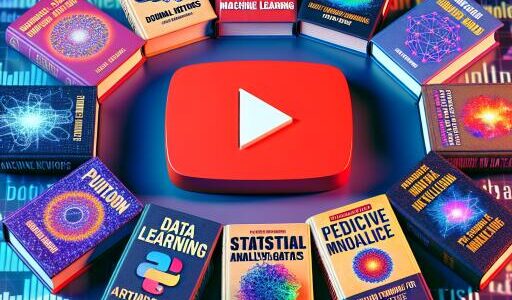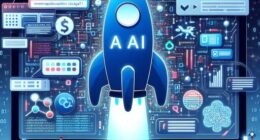Generative AI Has an Intellectual Property Problem
In the rapidly evolving landscape of artificial intelligence, generative AI has emerged as a groundbreaking tool in the realm of creativity and design. By harnessing vast data lakes and analyzing snippets of information to uncover patterns and relationships, this technology is revolutionizing how content is created across various creative industries. From generating realistic images and writing compelling narratives to composing music and beyond, generative AI’s capabilities seem almost boundless. Yet, this innovative technology is navigating through murky legal waters, especially concerning intellectual property rights.
The primary legal quandaries orbiting around generative AI include copyright infringement concerns, determining ownership of AI-generated works, and the problematic nature of using unlicensed content in training data. These issues highlight a significant gap in the current legal framework, which struggles to keep pace with the rapid advancements in technology. As generative AI systems learn and create by absorbing massive amounts of data, the originality and ownership of their output become contentious topics. Are these outputs genuinely novel creations, or are they mere extensions of pre-existing works?
Legal experts and courts are fervently examining how intellectual property laws should adapt to embrace the complexities of generative AI. The challenge lies in balancing the promotion of innovation and creativity while ensuring rightful creators are compensated and acknowledged for their contributions. As of now, several legal cases concerning the implications of generative AI on copyright laws are making their way through the courts, signaling the start of a long journey towards establishing clear guidelines.
For companies that are pioneering or utilizing generative AI technology, this legal ambiguity poses significant risks. The potential for copyright infringement claims and questions surrounding the ownership of AI-generated content can lead to complex legal battles, unwanted publicity, and substantial financial losses. To navigate this uncertain terrain, these organizations must exercise caution and diligence in compliance with existing laws. Adopting best practices is crucial, such as ensuring that the training data for AI systems is free from unlicensed content, which can be a herculean task given the vastness and variety of data needed to train these models effectively.
Beyond selecting clean data sources, companies can take proactive measures to mitigate risk by developing robust methodologies for demonstrating the provenance of AI-generated content. By transparently showing the origins and creation process of such content, companies can strengthen their position in claiming originality or in disputes over copyright ownership. However, while these strategies are necessary under the current legal framework, they are but temporary fixes to a more systemic issue—the need for copyright laws that explicitly address the nuances of generative AI.
In conclusion, as generative AI continues to redefine the boundaries of creativity, the legal framework governing intellectual property rights must evolve in tandem. The journey to achieving a harmonious balance between innovation and protecting intellectual property promises to be intricately complex but is paramount to fostering a thriving environment where generative AI can reach its full potential without stifling the rights and remuneration of original creators. Until then, companies and creators alike must navigate these uncertain waters with vigilance and an eye towards the future, anticipating and adapting to the legal challenges that lie ahead.










